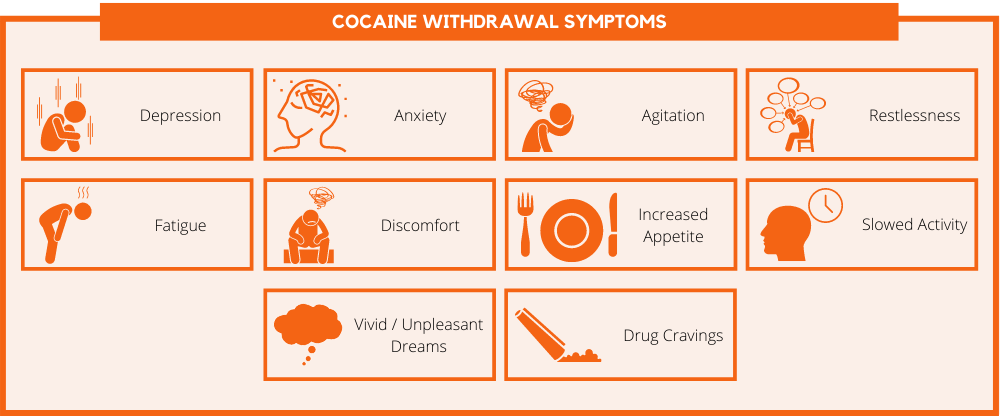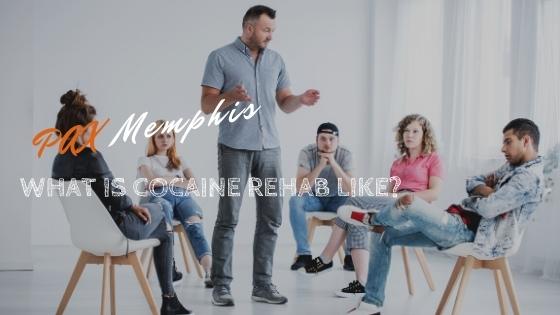Deciding that it is time to enter a cocaine rehab program in Memphis is the first step towards a better life. When someone admits to having a problem, they finally open themselves up to being able to receive the help they need.
Cocaine is a highly addictive and powerful stimulant drug. People that get addicted to it get physically and mentally hooked. They will experience withdrawal symptoms when they stop using the drug, cravings to take more of the drug, and difficulties in sobriety that trigger a desire to use cocaine.
Fortunately, inpatient rehab centers in Memphis can help treat cocaine addiction using a multidisciplinary approach combining holistic treatments with evidence-based solutions. Here’s what patients can expect from a cocaine rehab program.
Cocaine Detox
Chronic cocaine users will need to begin to rehab process with a detox program that provides around-the-clock care and supervision. This is meant to ensure the patient’s safety while they detox. Although there are currently no FDA-approved treatment medications for cocaine withdrawal, some pharmaceuticals may be used off-label to treat some symptoms.
Common symptoms of cocaine withdrawal include:[1]

- Depression
- Anxiety
- Agitation
- Restlessness
- Fatigue
- Discomfort
- Increased appetite
- Slowed activity
- Vivid or unpleasant dreams
- Cravings
While these symptoms are mostly psychological and not life-threatening, they can still be powerful and difficult to overcome without professional support. Inpatient drug detox centers in Memphis can offer the support and medical assistance of highly trained addiction experts. This support can help individuals cope with cravings and make it through the entire detox period without returning to cocaine use.
Some symptoms, like depression and cravings, can last for several weeks or months after quitting cocaine. People do not need to remain in a detox program for this long, however, because inpatient rehab programs in Memphis teach patients how to cope with their lingering symptoms without picking up a drink or a drug.
Inpatient Cocaine Rehab
After a 3-4 day stay in detox, most patients will transition to inpatient treatment. Inpatient is one of the best ways to shelter drug users from their usual environments and arm them with the tools they need to stay free from addiction. Inpatient programs provide around-the-clock support and medical care where patients can spend their early days in recovery.
Many inpatient programs last 30 to 90 days. They offer a variety of different therapies, including:
- Cognitive-behavioral therapy (CBT)
- Dialectical behavioral therapy (DBT)
- 12-Step facilitation
- Holistic therapy
- Support groups
- Relapse prevention
- Family therapy
- PTSD and trauma therapy
- Mental health counseling
- Aftercare planning
- Case management
- Fitness and nutrition
There are also specific therapies that can directly target stimulant addiction and cocaine abuse.[2] These include:
- Contingency management (CM) – an approach that uses a voucher or prize-based system that rewards patients for their abstinence or for achieving their goals in treatment.
- Motivational interviewing (MI) – this approach helps patients find their internal sources of motivation for sobriety.
- Cocaine Anonymous (CA) – although not a formal therapy technique, these groups stem from traditional Alcoholics Anonymous (AA) groups and can help people who are addicted to cocaine maintain their abstinence.
Everyone who seeks treatment for cocaine addiction will have different needs while in rehab. As a result, all therapies should be tailored to meet each patient’s specific needs.
IOP and Outpatient
After finishing an inpatient cocaine rehab program, many patients will transition to intensive outpatient programming (IOP) or outpatient programming (OP). These programs provide between 5 and 20 hours of therapy each week on an outpatient basis. Patients can live at home or in sober living while getting treatment. These levels of care help ease the difficult transition from residential treatment to independent life in recovery.
Both IOP and OP programs focus on the same treatment therapies as inpatient ones do. The main difference is that patients have more freedom and flexible schedules than they do in inpatient treatment. Some people, such as those who cannot go to a residential program, may benefit solely from some form of outpatient rehab.
Sober Living and Recovery
When patients complete their cocaine addiction treatment program in Memphis, they will need to continue their recovery by participating in some form of aftercare. This includes:
- Sober living – these are homes reserved for people in recovery. These sober environments help provide safe and supportive housing for people who are leaving rehab.
- 12-Step groups – both Cocaine Anonymous (CA) and Narcotics Anonymous (NA) can be great options for people in recovery from cocaine addiction. These groups help members support one another and maintain abstinence.
- Alumni groups – these groups consist of previous graduates of a specific treatment program. Members may come together for community events, recovery meetings, and much more.
- Individual counseling – many people will benefit from individual therapy that is continued after treatment. This therapy should be targeted towards a patient’s unique needs.
Cocaine addiction cannot be healed with a short stay in a Memphis rehab center, which is why patients need long-term care. These aftercare options can help support people in the months and years after leaving treatment.
Find a Cocaine Rehab in Memphis, TN Today
Cocaine is harmful to the mind, body, and spirit. When a person becomes addicted, cocaine can unravel every aspect of their life, leaving people desperate and suffering. While in recovery, on the other hand, people can learn to put a life of cocaine abuse behind them and embark on a journey that is full of new opportunities. Find answers to all your questions about treatment and get connected with a cocaine rehab in your area by speaking with one of our dedicated addiction specialists today.
References:
Medically Reviewed: September 25, 2019

All of the information on this page has been reviewed and verified by a certified addiction professional.










